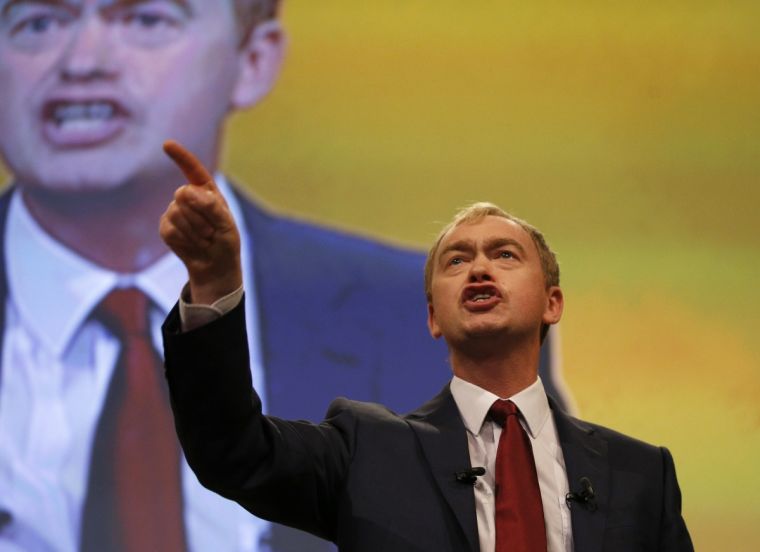Why Tim Farron's wrong: There are shared values and they matter
'Liberalism is eating itself.'
With these widely reported and reviewed words a fallen party leader – Tim Farron of the Liberal Democrats – has opened a debate over the future of faith and state in our post-Christian society.
He is right when he says that, 'To believe in the Bible's teaching and to also believe in people's right to reject it and to live as they choose, is about as close to a pure application of liberalism as you could get. And yet so many people who count themselves as liberals can't or won't grasp this.'

But I think he makes a tempting, but dangerous, mistake when he proceeds to say that, 'We don't really have shared values. There is no unifying set of British values.'
Ours is a post-Christian society. It denies a Christian basis for making public decisions. But it still supports a state that upholds values coming from our Christian heritage.
Each individual is made in the image of God. Each has the right to pursue the good life in peace and freedom. The state enables that pursuit not by telling citizens what is good, but by protecting the rights of all – individually, in family and in community – to seek goodness and live it out.
That is the liberalism emerging from the struggle for a free church, handed down through the generations since our civil war.
Separating church from state kept political noses out of the search for Christian truth. But it raised the question: what then is the basis for the authority of the state? The great Puritan Roger Williams had the answer: 'The sovereign, original and foundation of civil power lies in the people.'
The liberal state rests on consent. Shared values matter because they provide the basis for this consent. Christians who are also liberals must work to explain what these values are now, in post-Christian Britain.
Tim says that there are no British values – only values 'common to all human kind'. We can see what he means. But it carries the implication that our state exists not so much to protect its own citizens as to promote the interests of humanity worldwide. This in turn feeds the suspicion that liberalism is the ideology of a global elite putting its own interests ahead of those whose consent sustains the democratic state. This suspicion has fed the forces of Trump and Brexit – and threatens the legitimacy of the liberal project.
The term 'British values' is unhelpful. It begs a misleading question over national traits and what it is to be British. We need to talk about the values that sustain the state – not any state, but the state in a specific form that has grown on these islands, through a local history of learning from struggle. Citizens consent to a liberal state that defends each individual's capacity to explore and live out personal 'goodness'. This is not a denial of shared values – it is based on a profound notion of what value means, a notion that as Christians we think is biblical.
The attack on Tim Farron was not led by the nameless platforms of 'the Media', but by his own colleagues who (using Farron's words) 'count themselves liberals' but 'really aren't'. David Laws, the former LibDem Coalition minister, welcomed the fall of his leader because, 'Tolerating irrational prejudice has nothing to do with the liberalism I know.'
Sir Vince Cable was more subtle. At the start of the general election campaign, he said the 'problem' with Christians in politics, including Tim Farron, 'is that their religious faith has a certain approach...but they are also public figures who have to represent their constituencies, which are much more diverse'.
These statements show what Tim Farron was talking about. Sir Vince suggests Christians actually want to re-impose conformity, but are held back by 'diversity'. And if 'irrational prejudice' is not tolerable, then the state will decide which versions of which faiths are acceptable – and Christianity, we know, is offensive folly to the respectable mind (1 Corinthians 1:23).
The banquet where liberalism eats itself will be celebrated in many quarters – formations on the left and centre, as well as the hard-line Religious Right, believe liberalism has had its day and the fight for succession has started. Some of these may be benign, wanting (as one friend puts it) 'liberality' without 'liberalism'.Others are more sinister. Beware the microbes of post-Christian fascism.
We cannot be complacent. Christians must take the initiative to define shared values for renewed liberalism in a post-Christian era.
James Paul Lusk is author of 'The Jesus Candidate: Political religion in a secular ag'e, published in 2017 by Ekklesia and available on www.thejesuscandidate.uk and other sources.











